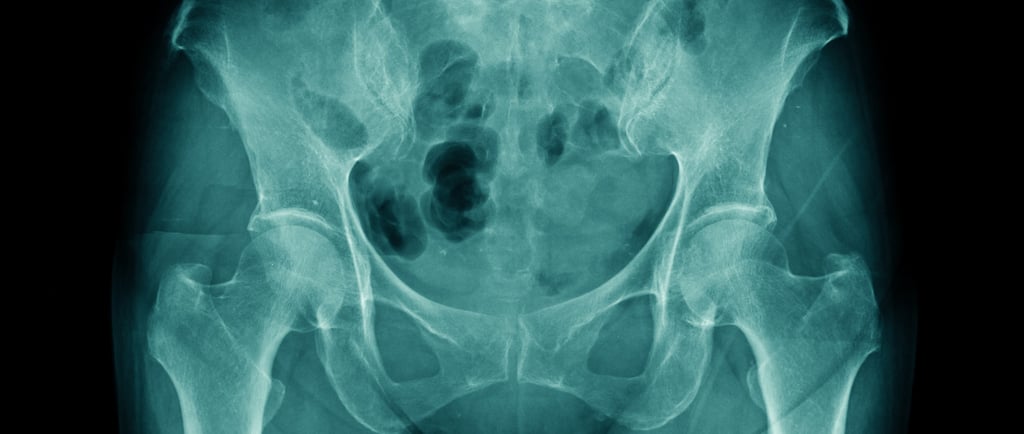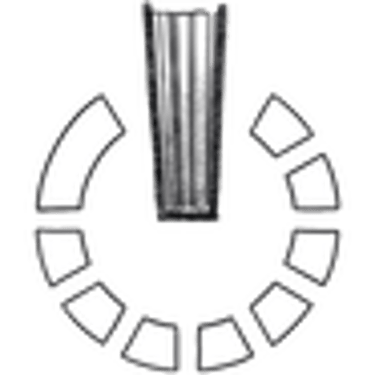I Don't F***ing Sit All Day!
Unpacking the mystery of tight hips beyond the "sitting too much" myth, explore how stress and trapped trauma might be the real culprits.
Tejnoor
1/3/20215 min read


Getting to the gym on a daily basis regardless of how tired I am from the day has been a regular part of my life over the last couple years. Well you know, lockdown aside. Still, I make it a point to get myself moving. Yet, despite working to increase my strength and overall activity, my hips remain an obstacle. With all of the time and effort placed into focused mobility along with addressing muscle imbalances, I would call it a travesty.
Is it better than it was when I started? Yes. But the real question I have is, why? The first few times I heard it said that “tight hips are caused by sitting too much,” or something along those lines, I accepted that and tried to make adjustments. And while I did spend a large chunk of my life sitting, it’s been years since I lived that way. Now every time I hear a mentor or colleague repeat the same redundant thing stated in every foundational personal training course about hip tightness being a result of sitting all day, I work extra hard to tame my microexpressions.
From the later years of university to present day, I have made it a point to stand as much as possible, especially in work environments. Often, to the point of hurting my feet. I didn’t even learn until last year that people roll out their feet for relief. That experience was life-changing. You know how people walk for a longer distance or duration than usual, they’ll often complain about their legs hurting? That was never me. I suffered from aching feet and sore shins. Honestly, all the standing on exhausted feet probably had more of a negative impact on my hips than sitting.
One of my latest Netflix obsessions is Tiny Pretty Things. For those who haven’t seen it, it’s a drama centered around teenage dancers at a ballet academy. Given that theme, the body and physicality are a dominant focus within the series. In the second last episode before the season finale, the school physician is taking a look at Madame Dubois’ bothersome hip.
Renfrew: “When I can’t alleviate a symptom, I think it’s because I’m not addressing the root cause. Emotional flare-ups can cause physical flare-ups.”
Dubois: “What are you saying? My hip hurts because daddy never loved me?”
Renfrew: “Something like that. A lot of women carry trauma in their hips.”
Okay, I’m not a dancer. In fact, the furthest thing from. I cannot dance to save my life. However, it made me think of something my boss said to me when I started at my new gym in Windsor just over a year ago. “You carry your stress in your hips.” It was strange to hear, but also made sense to me. While I now know hips are one of the most common areas that people hold stress, at the time I was more informed on neck and shoulders as the primary. The point is, I was inspired to do some research. Can trauma actually get stuck in the body?
Debi Silber, a holistic psychologist, says we “manifest all kinds of illnesses… trapped trauma gets stuck in the body and shows itself as symptoms, illnesses, conditions, and disease. That’s why it’s called ‘dis-ease.’ That’s also why many study participants and members of our programs find somatic therapies helpful.”[1]
The body/mind connection is a bit of a grey area when it comes to guidance because our physical and mental health are typically accessed via separate resources. While there is an undoubted link, the research and conversation around the topic provides limited and broad explanation in terms of maximizing progress and minimizing discomfort. Not only is the relationship fuzzy, even muscle tightness is confusing. “Issues in muscle tightness management include a lack of clarity as to what constitutes this phenomenon… Neurogenic symptoms such as spasticity are also termed muscle tightness, making it a challenge to discriminate between spasticity, s symptom with neurogenic origin, and muscle tightness, a condition of muscle fascia.”[2] This is why some of the sources used in this post are blog posts. With the unclear scientific explanations, their theories seem just as valid to me.
Yoga teacher and owner of Empower Healing, Lindsay Simmons, suggests that there are 6 things tight hips say about your emotional health: you fear the future, you fear relationships, you have emotional/physical traumas, a blocked second chakra, an inability to love yourself, and you hold onto the past.[3] While these are a bunch of generic statements that I feel most people could relate to, reading the article and its relevance to my life freaked the shit out of me. I think she might be onto something. Apparently this is a yoga thing because Cara McDonald, aka Yoga Mama Bear, oh so eloquently echoes the same ideas in her post about our emotional storage space. “Hips don't lie — they bury.”[4]
The strange thing is, there will be days when it seems like I’m doing everything right in terms of sleeping, the right exercises, eating well, etc. and yet, I feel tighter than usual. On the other hand, there will be days where I am exhausted, I feel like I’m doing everything wrong and I’m moving better than expected.
While my hips are a pretty consistent issue, the intensity fluctuates. Prior to the above research, I had made the joke that tight hips don’t seem to be an issue when it comes to sex. And while I was speaking truthfully (in addition to being funny), I figured that my pain was simply not a central focus at the time. However, as I’m starting to see how much of it could be attributed to a mental state of being, it’s becoming clear that there may actually be truth to the fact that there is less tightness.
Oxytocin, serotonin, and dopamine are released during foreplay and sex. At first I thought it might be antagonist hormones, and thought to address it similarly to muscle weakness-- the sex induced hormones oppose stress hormones. The research didn’t really validate that theory. Adrenaline, norepinephrine and cortisol (stress hormones) aren’t produced in the same area as oxytocin, serotonin, and dopamine.
Thinking back to the blog posts talking about trauma, it dawned upon me that low levels of serotonin are associated with depression and then it started to make a whole lot of sense. “Serotonin helps regulate sleep, appetite, and mood and inhibits pain. Research supports the idea that some depressed people have reduced serotonin transmission. Low levels of a serotonin byproduct have been linked to a higher risk for suicide.”[5]
My body and the research has me convinced that the solution is more than the exercises I have been provided with to fix tight hips. “When we have a negative reaction to an experience and then don’t process and release emotions we are feeling, they can become lodged in the body. This can happen whether an experience seemed big and traumatic or like almost nothing. Either way, we end up with the same result: a whole lot of emotional energy stuck in a place where it shouldn’t be-- in us.”[6] I suppose the next step is to explore the methods used to release the possible trauma and figure out how the hell to get it out.
1. Silber, Debi. “Trust Again: Overcoming Betrayal and Regaining Health, Confidence, and Happiness.” Publishers Weekly 31 Aug. 2020, p 109. Print.
2. Bhimani, Gaugler. “Consensus Definition of Muscle Tightness From Multidisciplinary Perspectives.” Nursing research (New York) 69.2 (2020): p. 110. Web.
3. "The Remarkable Link Between Tight Hips and Your Emotions ...." 23 Nov. 2020, https://www.organicauthority.com/energetic-health/tight-hips-and-emotional-health. Accessed 3 Jan. 2021.
4. "Why your hips are keeping you sad (and what to do about it ...." 13 Nov. 2014, http://yogamamabear.com/downward-facing-blog/why-your-hips-are-keeping-you-sad-and-what-to-do-about-it. Accessed 3 Jan. 2021.
5. "What causes depression? - Harvard Health." 24 Jun. 2019, https://www.health.harvard.edu/mind-and-mood/what-causes-depression. Accessed 3 Jan. 2021.
6. Scher, Amy B. How to Heal Yourself from Anxiety When No One Else Can. Minnesota. Llewellyn Publications, 2019.
7. <a href="https://www.vecteezy.com/free-photos/hip-pain">Hip Pain Stock photos by Vecteezy</a>
Achieve
Transform your fitness with personalized coaching today.
CONTACT
Thrive
one@tejnoor.com
© 2025. All rights reserved.
